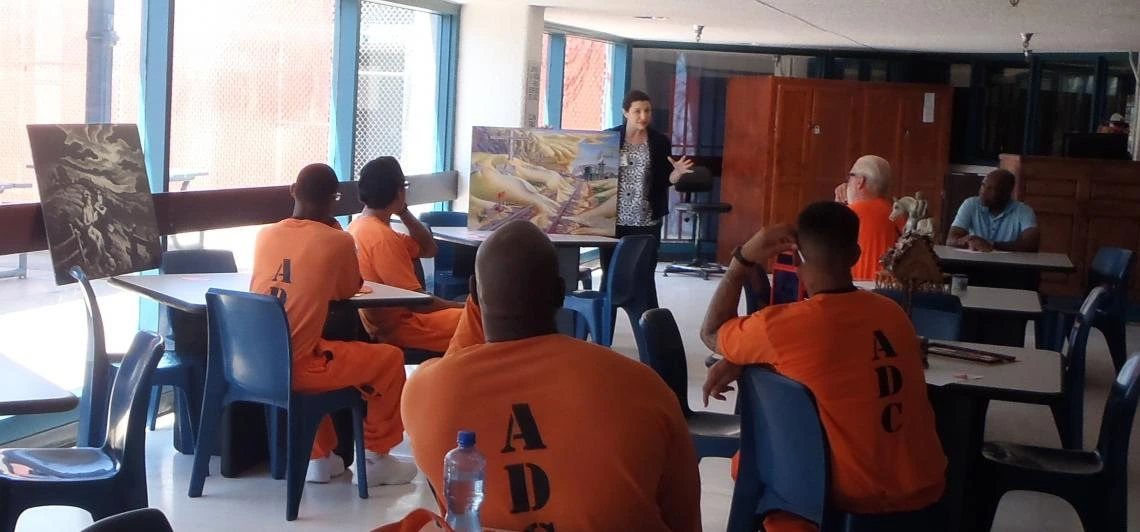A Chance to Learn
Assistant professor Marcia Klotz believes education has the power to change lives.

When the University of Arizona English department received a gift from Barbara Martinsons and began the Prison Education Project, Klotz was eager to get involved.
“I sometimes wish I could teach more than just those students who can afford to take my classes, or those who come from programs that prepare them well for college,” said Klotz, who teaches English and gender and women’s studies.
“Teaching in the prison system allows me a chance to do what I’m best at in a way that can begin to redress those inequalities.”
Klotz and Colleen Lucey, an assistant professor of Russian and Slavic studies, have served as faculty coordinators since spring 2017.
Since then, they’ve expanded from teaching literature and writing by bringing in faculty members from a variety of disciplines. Astronomy professor Edward Prather taught one of the most popular lectures to date.
“Our society is efficient at making certain groups more likely to be locked up than others. When we talk about affording opportunity to education, this is just one version of how we can be a part of making a change,” Prather said.
Within minutes of meeting the group of 30 incarcerated men who attended his astronomy class at the minimum-security Whetstone Unit in Tucson, Prather had established the learning environment he hoped for.
After learning a method for detecting exoplanets outside our solar system, students applied it in small groups. Gestures, mathematical arguments and sudden insights marked their discussions.
Over the next hour and a half, murmurs like “This guy’s awesome” and questions that floored Prather in their level of astronomy knowledge filled the room until class ended with groans of complaint.
“That fevered pitch of conversation was what I was trying to foster. That's where the real learning happens,” Prather said.
For Jeremy, a Whetstone detainee who’s attended several classes taught by Arizona professors, Prather’s topic was the most interesting.
“I read books about astronomy. I would take a class in it if I could,” he said.
Most attendees spoke with Prather afterward.
“It was profound to be thanked sincerely,” Prather said. “I noticed the happiness that just being a part of education brought them, and that might be the first time they ever felt that way.”
Turning a Vocation Into a Legacy
About 25 years ago, Barbara Martinsons was teaching at Marymount Manhattan College in New York City. The faculty were given the chance to trade teaching a regular class for teaching one in a prison.
Martinsons decided to try it.
The experience “changed the direction of my life and gave me a sense of vocation,” she said.
Martinsons remains dedicated to promoting education for those currently in or coming out of the prison system.
“Most of the people in prison are going to come out,” she said. “Education can make them stronger citizens, parents and participants in their communities.”
Support the Prison Education Project
Give $25 to $500 to help the Prison Education Project continue to develop and provide innovative programming and courses. Visit the crowdfunding site to make your gift.

